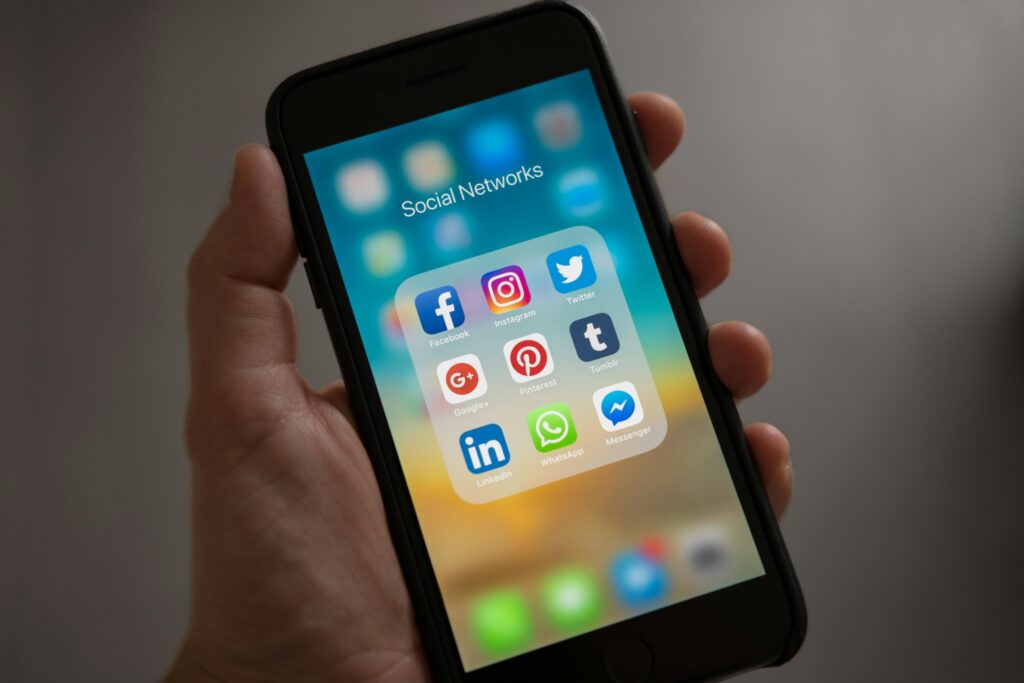Table of Contents
- Who is “The Anxious Generation”?
- Insights on Navigating Well-Being in the Digital Colosseum
- A Strategy for the Anxious Generation
- The Need for a Large-Scale Shift
- Steps Society is Taking to Save the Anxious Generation
- Charting a Path Forward for Adolescent Mental Well-Being
Who is “The Anxious Generation”?
Jonathan Haidt coined the phrase “The Anxious Generation” to describe the adolescents facing a troubling rise in mental health issues. Haidt explores the causes in his latest book, “The Anxious Generation: How the Great Rewiring of Childhood Is Causing an Epidemic of Mental Illness.”
In the book, Haidt blames technologies such as smartphones and social media for the mental health epidemic and provides steps to take to combat the problem. Access to this tech provides access to a heightened level of information and social comparison to the underdeveloped adolescent brain.
Covering a range of topics from science to fitness, The Joe Rogan Experience podcast lets listeners in on conversations with experts as candid as they are insightful. Recently, Joe Rogan hosted an episode with Jonathan Haidt on the rise of mental health issues among adolescents. Haidt’s insights and actionable steps provide wisdom and potential.

Insights on Navigating Well-Being in the Digital Colosseum
Social Media content is fueled by strong emotions.
The widespread use of smartphones began around 2010. This is, as Haidt claims, the biggest component to blame for the troubling trend of anxiety and depression among adolescents. Moreover, the allure of social validation through “likes” and comments can lead users to share content that reflects a desirable image. As a result, social media becomes not just a platform for connection and communication, but also a battleground of emotions and social comparison. Furthermore, algorithms ensure that the most powerful and provocative content gets the most penetrating reach. This is the social platform from which many from the Anxious Generation are developing their worldview.
Because of this, Rogan likens the once-called “digital town square” more to a Roman Colosseum. Here, content choices and visibility are manipulated to engage “fans in the stands hoping to see blood.”
Ease of access while executive functioning skills are undeveloped creates a vicious cycle.
Unrestricted and immediate access to social media, combined with underdeveloped executive functioning skills in adolescents, sets a detrimental cycle in motion. In the podcast, Rogan and Haidt exchange relatable anecdotes, such as the struggle of closing an app once you’ve started scrolling. For adolescents with the still-maturing executive functioning skills needed to impose self-regulated limits, the problem is much worse. Their struggle is then exacerbated by the deliberate and extremely well-crafted design of social media platforms to sustain constant user engagement. Consequently, the absence of opportunities to exercise critical thinking exaggerates the deficiency in self-discipline. This perpetuates a troublesome cycle on par with addiction. Yes, that’s right. The still-developing brain coupled with expertly designed social-media scrolling traps can ensnare adolescents in an addictive cycle.
Parents and community play an important role in shaping this modern landscape.
Adolescents tend to crave social acceptance, they are human after all. Because of this, they naturally gravitate toward platforms that allow them to fulfill this innate need. Social media networks effortlessly satisfy this deep-seated craving, providing a readily accessible arena for fostering connections and securing validation. Haidt appreciates this need and uses it to underscore parental and community involvement in helping adolescents foster healthier social norms.

A Strategy for the Anxious Generation
Haidt’s solutions to this troubling trend involve reshaping the social culture of your child’s community. The goal is to foster new social norms that build a healthy mindset without shunning technology.
Pump the brakes on giving adolescents smartphones.
The simple guideline that Haidt suggests is to not give your child a smartphone until high school. Feel the need to provide a mobile phone for safety-related communication? Get a flip phone, he says. Then, he advises to keep them off social media until the age of 16. The barrage of self-comparison and extreme opinions can be especially damaging to adolescents’ still-developing sense of self.
However, Haidt understands that more involvement is needed to foster resilience and mental well-being in adolescents. How does one accomplish that?
More independence, unsupervised free-play, and real-world responsibility.
Independent activity for children, which has been in decline for many years, can strengthen mental well-being in a number of ways. Arguing for more of this “free-range” parenting, Haidt co-founded the organization, Let Grow. Let Grow helps parents and educators discover more ways to encourage independence, and in turn, build resilience and maturity among their children.
Pointedly, Haidt elaborates on the fears parents have of putting their children at risk. Most notably, Haidt reminds us that while dangers and risks occur in real life, they occur online too. Unfortunately, online risks are even more varied and unpredictable. The concern is that we have overprotected our children in real life, and underprotected them online.

The Need for a Large-Scale Shift
Rogan and Haidt refer to data from science-backed studies in their discussion of this concerning trend. Inclusion of this data helps to consider the problem as much more than a conversational quip about “kids these days.” Placing blame for this crisis on kids’ relationship to technology is viewed by some as simply a moral panic. But Haidt believes the data shows a clear connection.
Haidt suggests the Anxious Generation would benefit from age limitations set for smartphone ownership and social media access. Theoretically, this could work – but only with a large enough portion of their community opting in. The need for adolescents to be where socialization occurs makes this community-action style of restriction especially challenging. This is why they believe parental and community involvement will need to play an active role.
Overall, the implications for our society are dire. Haidt compares this epidemic to the deeply embedded cultural relationship with junk food. A shift in eating habits and food products did not take place until health data became so pervasive and undeniable. This is one of the biggest challenges our society faces in addressing this problem before it’s too late. Fostering the social norms that Haidt laid out may be helpful in achieving this large-scale change.

Steps Society is Taking to Save the Anxious Generation
Addressing the mental health crisis among adolescents is no easy topic to tackle. Developing and sharing suggestions requires the scientific and psychological understanding that Haidt brings to the topic. However, Haidt’s advice on how to raise a less anxious generation only addresses one primary cause of the issue.
With the inevitable creation of new technology that utilizes big data and machine learning, brains of all ages will need innovative solutions. This makes it important to consider potential changes needed at societal levels to address the rapid rise in mental health issues.
Currently, the U.S. Surgeon General lists Youth Mental Health as a Priority. They suggest ways to aid the problem from many angles – not just from the parents. For instance, technology companies can foster safe and healthy online environments. Researchers can develop and establish standardized definitions and measures for social media and mental health outcomes. And policymakers can strengthen protections in many ways.
Thirty-five U.S. states, as well as Puerto Rico, have addressed legislation regarding social media and children in 2023. Twelve of these states enacted bills or adopted resolutions. Most of the legislation centers around age limitations, similar to Haidt’s suggestions. Further legislation on banning specific apps, data usage, and more are frequent topics of state and federal courts.

Charting a Path Forward for Adolescent Mental Well-Being
The discussion between Joe Rogan and Jonathan Haidt sheds light on the complexities of addressing the mental health crisis among adolescents in the digital age. While Haidt’s insights offer valuable strategies for fostering resilience and well-being, they represent just one facet of a multifaceted issue.
As society grapples with the relentless advance of technology and its impact on young minds, cross-sector collaboration is imperative. From parents to policymakers, technology companies to researchers, concerted efforts are needed to navigate this ever-changing and challenging terrain.
By heeding the advice of experts like Haidt and implementing comprehensive solutions, we can strive towards a future where adolescents thrive. We believe it is possible to equip adolescents (and adults) with the resilience and skills needed to navigate the digital colosseum of the 21st century.
Additional Resources:
Listen to Joe Rogan & Jonathan Haidt’s full conversation on episode #2121 Joe Rogan Experience
Read or listen to the audiobook of “The Anxious Generation” by Jonathan Haidt
Explore organizations that align with these philosophies as presented in “The Anxious Generation”

